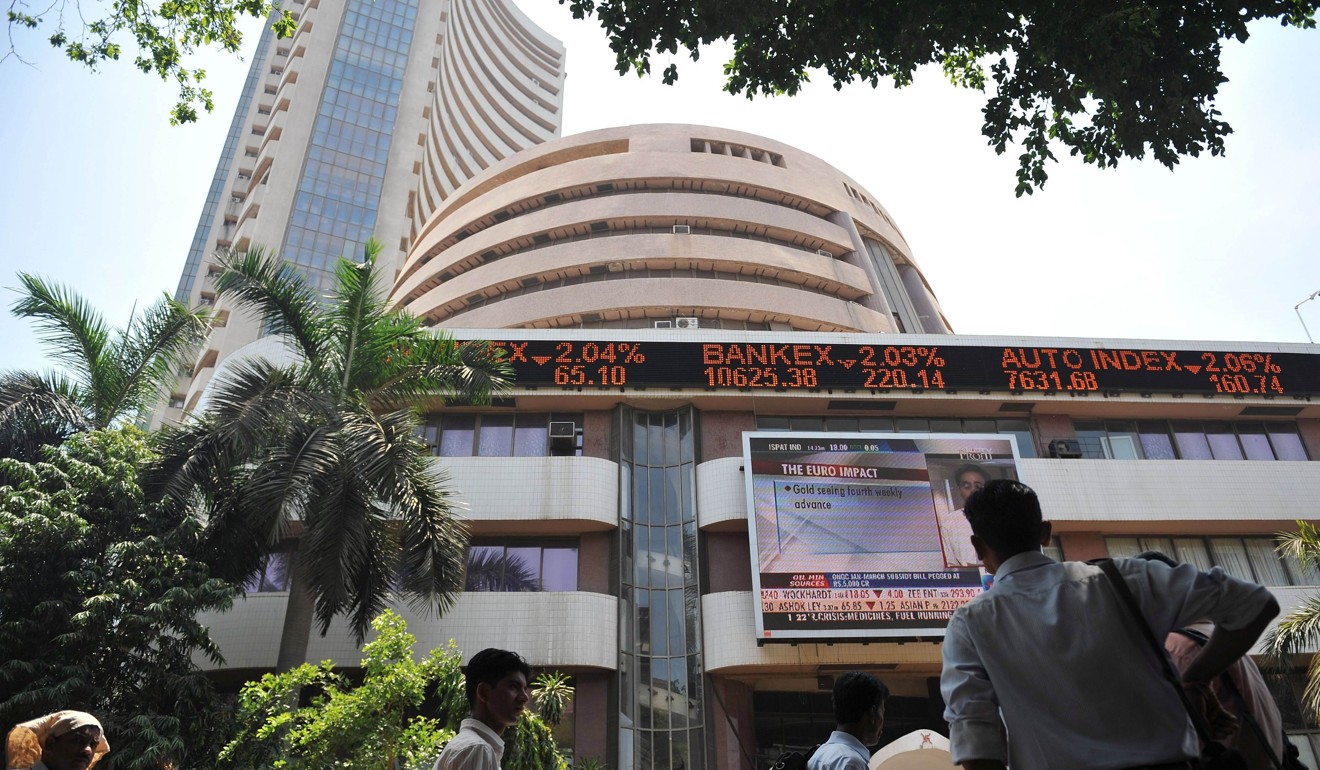
Beware the three elephants in the room in global markets
Italy’s ailing banking sector, coupled with the country’s huge public debt; the US’ rapidly deteriorating fiscal position; and emerging markets are no longer cheap, sitting on valuations at their most expensive level since 2010
For an indication of the extent to which international investors remain bullish on Europe, look no further than the resilient euro.
Since talks on forming a three-way coalition government in Germany collapsed on November 19, the single currency has risen a further 1.4 per cent against the dollar, taking its gains versus the US dollar since mid-April to a staggering 12 per cent.
Euro-zone equities, meanwhile, are up more than 4 per cent over the past three months, buoyed by the briskest economic growth in the bloc in over six and a half years.
Yet in their enthusiasm for European assets, investors are ignoring one of three elephants in the room in financial markets: the persistent vulnerability of the euro zone’s banking sector.
Last Wednesday, the European Central Bank published its latest Financial Stability Review in which it warned that the bloc’s lenders are “riskier than their global peers” partly because of “slow progress in tackling high [non-performing loan] ratios in certain jurisdictions.”
The country that is of most concern to the ECB is Italy which accounts for roughly a third of the bloc’s nearly €1 trillion stock of bad loans.
The country that is of most concern to the ECB is Italy which accounts for roughly a third of the bloc’s nearly €1 trillion stock of bad loans
Yet in a sign of the severe problems in addressing Europe’s banking woes, tougher rules from the ECB which would force banks to provision more aggressively against new loans that turn sour early next year are being fiercely resisted by Rome.
The changes would raise Italian banks’ funding costs and restrict the supply of credit to an economy that has just emerged from a protracted recession.
The clash between Italy and the ECB is not only stymieing the much-needed clean-up of Europe’s banking sector, it suggests that Italy, which next spring will hold one of the most important general elections in a major economy, is the most likely source of renewed financial turmoil in the euro zone.
Deutsche Bank notes Italy’s ailing banking sector, coupled with the country’s huge public debt burden and populist politics, provide the “ingredients of a potential [global] financial crisis.”
The second elephant in the room is the United States’ rapidly deteriorating fiscal position
The second elephant in the room is the United States’ rapidly deteriorating fiscal position. That Congress looks set to approve a massive cut in the corporate tax rate to 20 per cent at a time when America is enjoying its third-longest expansion since 1850, is at full employment but crucially, is labouring under a public debt burden that already stands at an alarming 107 per cent of GDP (up from 73 per cent in 2008), according to the International Monetary Fund, is deeply troubling.

Last Wednesday, Janet Yellen, the outgoing chair of the Federal Reserve, said she was “very worried about the sustainability of the US [government] debt trajectory.” She should be.
The Bipartisan Policy Centre, a US think tank, warned in October that the tax cuts will contribute to a widening of the fiscal deficit to more than US$1 trillion (or 4.5 per cent of GDP) by financial year 2019, three years earlier than previously envisaged.
While markets have been clamouring for tax cuts ever since Donald Trump was elected president, investors should be careful what they wish for.
Not only will steep cuts in corporate tax rates put further strain on America’s shaky public finances, their inflationary effect could force the Fed to raise interest rates more aggressively, pushing up the dollar and causing a tightening in financial conditions.
This year’s nearly 30 per cent surge in the MSCI Emerging Markets Index, the leading gauge of stocks in developing economies, has left valuations at their most expensive level since 2010
This is tied to the third elephant in the room: emerging markets are no longer cheap.
This year’s nearly 30 per cent surge in the MSCI Emerging Markets Index, the leading gauge of stocks in developing economies, has left valuations at their most expensive level since 2010, according to Bloomberg.
Since the beginning of last year, the so-called forward price-to-earnings ratio of the index has shot up from just over 10 to nearly 13, not that much below the multiple for euro – zone equities.

More worryingly, spreads, or the risk premium, on emerging market corporate debt, as measured by JPMorgan’s benchmark corporate emerging market bond index (CEMBI), are close to their tightest levels on record.
If the dollar undergoes another sharp and sustained appreciation – the dollar index, a gauge of the greenback’s performance against a basket of other currencies, has fallen 10 per cent this year – due to a more hawkish Fed, emerging market assets will look even more overpriced and will be vulnerable to a major correction.
Still, it remains to be seen whether investors will become more sensitive to any of these risks. For the time being, nothing, it seems, can pull the rug out from under the rally – not even the prospect of Trump being impeached.
All three elephants in the room, however, cannot be ignored forever.
Nicholas Spiro is a partner at Lauressa Advisory

